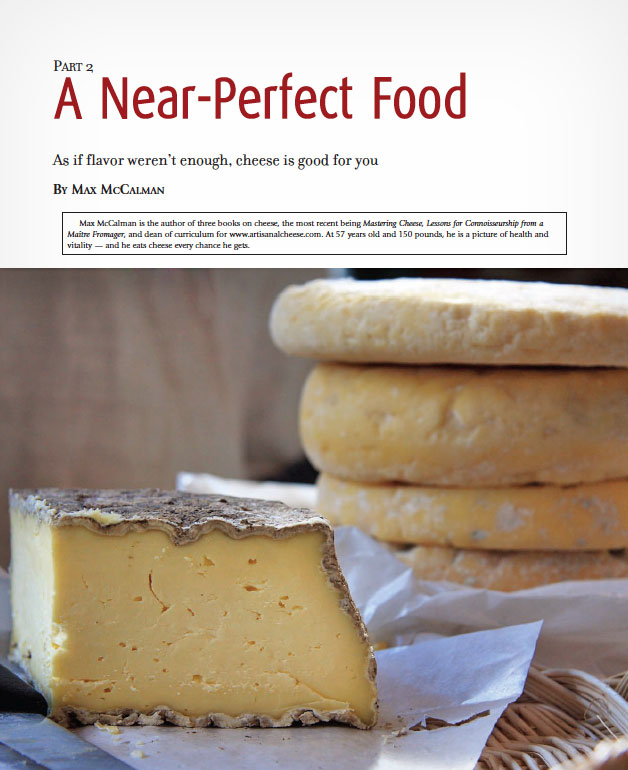A Near-Perfect Food, Part 2
As if flavor weren’t enough,
cheese is good for you
BY MAX MCCALMAN
Max McCalman is the author of three books on cheese, the most recent being Mastering Cheese, Lessons for Connoisseurship from a Maître Fromager, and dean of curriculum for www.artisanalcheese.com. At 57 years old and 150 pounds, he is a picture of health and vitality — and he eats cheese every chance he gets.
I believe one reason we love cheese is because cheese loves us. Recognition that it’s good for us contributes to our growing appreciation of this wonderful food. We subconsciously recognize cheese as a primordial and near-complete form of sustenance, derived from our first food — milk. Since milk is the only food necessary during the critically important first weeks and months of our lives — when we’re growing faster and learning more than at any other stage of life — it must be good for us. It’s difficult to imagine how it could not be. The composition of the nutrients — the proteins, amino acids, vitamins, minerals, beneficial fats and fatty acids — vary from cheese to cheese. No two cheeses are created equal, which is one reason why it’s a good idea to eat a variety of cheeses.
Unfortunately, many people still view the consumption of cheese as an indulgence. Even within the cheese industry itself, I often hear comments suggesting cheese cannot be all that good for you or you should limit the amount you eat. The negative pronouncements most often center on a potential for weight gain and clogged arteries. Fortunately, compelling evidence contradicts those notions.

